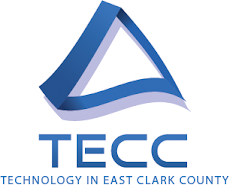
Many times, regardless of how well we plan, some things just fail. Maybe it’s a webinar or meeting presentation that was well prepared, but suffered technical difficulty. Or a disciplined savings plan lost nearly half of its value in today’s recession. These challenging situations define our days, but our response to them determines our future success.
While some curse and yell, others see failures as opportunities. Poet Maya Angelou writes, “I've learned that you can tell a lot about a person by the way he or she handles these three things: a rainy day, lost luggage, and tangled Christmas tree lights.” Failures can either destroy or advance our goals; but it’s our response to them that really determines the outcome.
Thomas Edison experienced repeated failures. His true success was not his invention of the light bulb, but rather his tenacity to use failures as a means to gain new information and new perspectives. Our most successful employees are the ones who have the persistence and optimism to learn from difficulty and use what they learn to re-imagine, recreate and re-experiment. They are the ones who have learned to be positive and to constantly hunt for opportunities. As the economy struggles to recover, successful organizations will reinvent their futures by focusing on these opportunities.
Here are some tips on getting things right, when things start off wrong:
1. Create and support a workplace culture that encourages employees to look for the opportunity in every event.While organizations value effort, innovation and intent, they should also celebrate non-conventional and non-conformist perspectives. Occasional failures show that employees are pushing performance to the edge. As management consultant Tom Peters states, “A day without a screw up is a day without enough reach.” After failures, managers should encourage employees to focus on the positive; this creates a culture that is open, free thinking, and believes that “Yes, we can.”
2. Focus on exponential, not incremental, opportunities. Direct your discussions of opportunities toward significant, not average, results. Performance “lite” is unacceptable. Consider opportunities that have the potential to be “game changers.” Successful organizations know nothing lasts forever, and they must continually reinvent themselves.
3. Commit time and effort to help employees learn their strengths and use them to develop opportunity-thinking.Each of your employees has the potential to be great at certain things. Encourage them to use their intrinsic talents and strengths to deliberatively hunt for opportunities in areas in which they have the greatest insight.
4. Actively solicit input from employees. Leaders who ask “big” questions and take the time to listen to responses can discover new perspectives, facts, ideas and dreams from customers, employees and vendors. Try asking questions that begin with: “How about …?” “What if …?” or “Tell me about …” Assess what you hear and then share it with your team to expand the hunt for opportunities.
5. Share success with everyone. While it’s easy to openly share and celebrate successes, companies should also communicate failures in a way that inspires employees to rethink, redefine and reinvent. The more successes are shared with everyone, and failures are seen as a way to improve, the more idea-risks employees will take.
In an intellectual workplace, innovation, inventing and opportunity hunting must be core expectations of all employees.
Some people are discouraged or angered by failure and change. Others see it as an opportunity for greater success. Not only can the hunt for opportunities increase your success, but it may help you invent the next product that makes people’s lives better.
Jay Forte is a speaker, consultant and nationally ranked thought leader. He applies years of research, along with his training as a CPA, working with organizations that want to successfully activate and inspire exceptional employee performance. Jay is author of the forthcoming book “Fire Up Your Employees and Smoke Your Competition.” For information on keynotes, speaking, consulting or to see the daily "BLOGucation," visit: www.humanetricsllc.com or call: 401-338-3505.














No comments:
Post a Comment